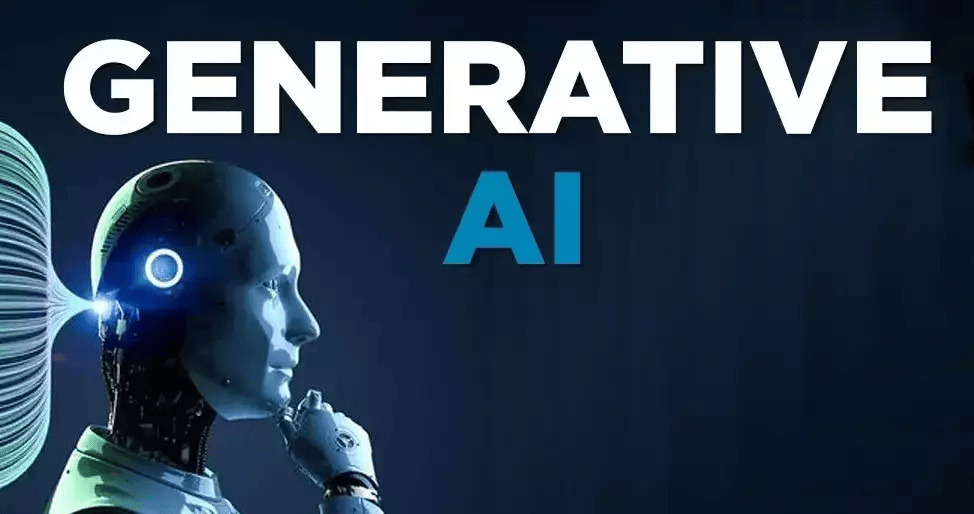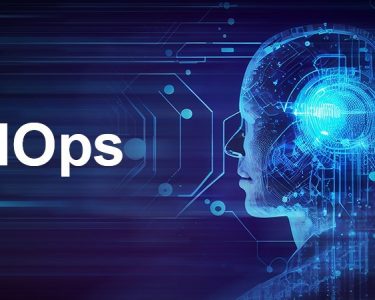The tech services industry, a cornerstone of innovation and progress, finds itself at a crossroads. Generative AI, a powerful technology capable of creating entirely new content or modifying existing data, is poised to disrupt traditional service offerings. This disruption presents not just a challenge, but a golden opportunity for tech service providers to reinvent themselves and claim a significant share of a lucrative new market.

The Generative AI Revolution
Generative AI encompasses a range of techniques, from machine learning algorithms that can generate realistic images to AI-powered tools capable of writing different kinds of creative content. This technology is rapidly maturing, blurring the lines between human creativity and machine-generated ingenuity.
For the tech services industry, the implications are profound. Repetitive tasks like code generation, report writing, and data analysis could be significantly automated using generative AI. This frees up human talent to focus on higher-order tasks that require strategic thinking, complex problem-solving, and human-to-human interaction.
Reimagining Tech Services with Generative AI
Forward-thinking tech service providers are already exploring ways to leverage generative AI to enhance their offerings. Here are some exciting possibilities:
- AI-powered Development Tools: Imagine a world where developers can leverage AI to generate code based on pre-defined parameters automatically. This expedites the development process, allowing developers to focus on the logic and functionality of the application.
- Enhanced Design and Prototyping: Generative AI can be used to create realistic mockups and prototypes, allowing for faster iteration cycles and more informed design decisions.
- Personalized Learning and Training: AI-powered learning platforms can tailor content and training modules to individual needs and learning styles, leading to a more effective and engaging learning experience for employees.
- Improved Client Communication: Generative AI can be used to automate report generation, create personalized presentations, and even translate documents in real-time, fostering better communication and collaboration with clients.
Building a Generative AI Roadmap
The transition to a generative AI-powered future requires careful planning and execution. Here are some key steps tech service providers can take to build a successful generative AI roadmap:
- Identify Use Cases: Carefully analyze internal processes and client needs to identify areas where generative AI can deliver the most significant impact.
- Invest in Talent: Building a team of AI specialists and data scientists will be crucial for developing and implementing generative AI solutions.
- Embrace a Culture of Experimentation: Be willing to experiment with different generative AI tools and techniques to identify the best fit for your specific needs.
- Prioritize Data Security and Governance: As with any AI implementation, robust data security measures and ethical considerations are paramount.
The Human-AI Symphony: Collaboration is Key
While generative AI offers tremendous potential, it’s important to remember that it is not a replacement for human expertise. The true magic lies in the synergy between human and machine intelligence.
Tech service providers must foster a culture of human-AI collaboration. Human professionals will continue to play a vital role in tasks that require critical thinking, emotional intelligence, and the ability to understand and navigate complex social situations.
The Generative AI Advantage: A Brighter Future for Tech Services
By embracing generative AI and fostering a culture of human-AI collaboration, tech service providers can unlock a new era of innovation and efficiency. The ability to automate repetitive tasks, personalize client experiences, and accelerate development cycles will position these companies at the forefront of the tech revolution.
The road ahead will be one of continuous learning and adaptation. However, for tech service providers who seize the generative AI opportunity, the future promises to be bright, brimming with possibilities and brimming with potential to redefine the entire industry.
While the potential of generative AI is undeniable, there are challenges that tech service providers need to be aware of as they navigate this evolving landscape. Here are some key considerations:
- Bias and Fairness: Generative AI models are trained on vast amounts of data, and this data can perpetuate existing biases. Tech service providers must be vigilant in mitigating bias in their AI models to ensure fair and ethical outcomes.
- Explainability and Transparency: Understanding how a generative AI model arrives at its output can be crucial for building trust with clients. Investing in explainable AI (XAI) solutions will be essential.
- The Evolving Regulatory Landscape: As generative AI becomes more sophisticated, governments around the world are grappling with how to regulate this technology. Tech service providers must stay updated on evolving regulations and ensure compliance.
- The Human Factor: The introduction of generative AI might lead to concerns about job displacement. Tech service providers need to proactively address these concerns by focusing on retraining and reskilling initiatives, ensuring a smooth transition for their workforce.
Building a Generative AI Ecosystem: Collaboration is Key
The successful implementation of generative AI goes beyond the efforts of individual companies. Collaboration across the tech services ecosystem will be crucial. Here are some potential areas for collaboration:
- Industry Standards and Best Practices: Developing industry-wide standards and best practices for responsible development and deployment of generative AI will foster trust and transparency.
- Data Sharing and Collaboration: Collaboration on data sets can accelerate the development and refinement of generative AI models, leading to more accurate and efficient solutions.
- Academia and Research Partnerships: Building strong partnerships with academic institutions and research labs will provide access to cutting-edge research and talent.
The Future of Work: A Human-Centered Approach
The rise of generative AI will undoubtedly reshape the landscape of work within the tech services industry. New roles will emerge, requiring a different skillset. Here’s what the future of work might look like:
- The Rise of the AI Orchestrator: This role will involve overseeing and managing the integration of generative AI tools into existing workflows.
- The Human-AI Teammate: Tech professionals will work alongside AI assistants, leveraging their strengths to achieve optimal outcomes.
- Focus on Soft Skills: Soft skills like critical thinking, problem-solving, communication, and collaboration will become even more crucial in a world powered by AI.
Conclusion
Generative AI presents a transformative opportunity for the tech services industry. By embracing this technology, fostering human-AI collaboration, and building a strong generative AI ecosystem, tech service providers can redefine their offerings, unlock new levels of efficiency, and propel themselves towards a future of unparalleled innovation and success.
This journey will require a commitment to continuous learning, adaptation, and a human-centered approach. But for those who embrace the challenge, the rewards will be immense, shaping a future where tech services play an even more vital role in driving progress across all industries.
Looking for more on the latest in tech? Check out our Digital Digest Blog for in-depth articles.




